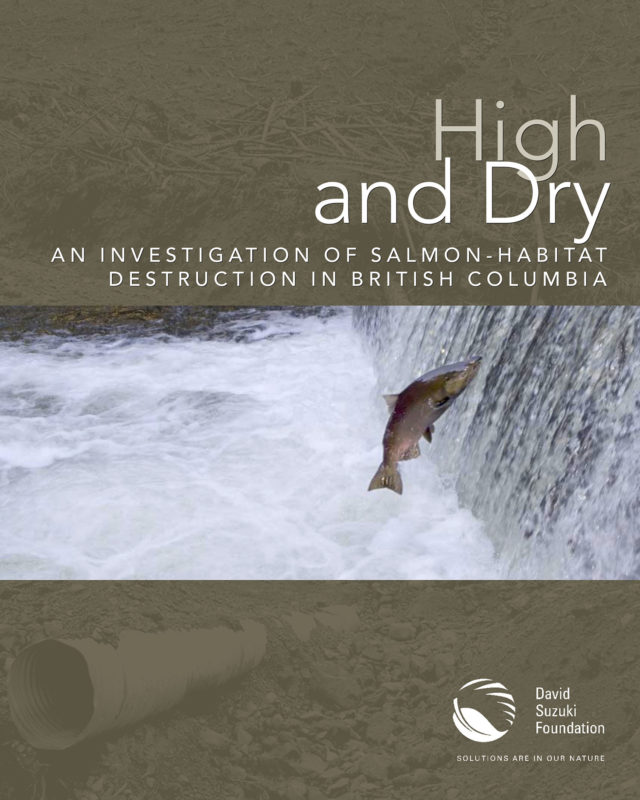High and Dry: An Investigation of Salmon-Habitat Destruction in British Columbia
Published by:
David Suzuki Foundation
Authored by:
John Werring
ISBN:
1-897375-07-7
Biodiversity, Oceans and fresh water protecting coastal waters, species at risk, salmon, British Columbia, conservation, policy and regulation, water systems, land use
Recent (2000, 2005) internal Fisheries and Oceans Canada audits have found that fish-habitat damage in B.C. is still ongoing and is widespread, particularly due to activities related to timber harvesting and urban and rural development. Even the auditor general of Canada has chastised the DFO, several times, for failing to take the steps needed to protect salmon habitat.
Why is this allowed to happen? The biggest problem is that over the past few decades government support for economic development has, more often than not, trumped fish-habitat protection, and instead of things getting better, it appears that things may get a lot worse. Of particular concern are recent changes to the way government provides oversight with regard to fish-habitat protection. Essentially, the federal and provincial governments are withdrawing from their historical role of being the arbiter of traditional methods of fish-habitat protection, like fish-habitat impact assessment, monitoring and enforcement. In the past, federal and provincial environmental-agency regulatory staff have conducted this work in a transparent and accountable system. Now, however, the new policies and budget cuts in Ottawa and Victoria have reduced the operational capacity within DFO and the relevant provincial ministries to protect fish habitat.
The ultimate question now: Is this new approach to habitat management working? The David Suzuki Foundation investigated some specific land-development initiatives to find out. We monitored and documented recent stream and fish-habitat damage in different parts of B.C., reported that damage to DFO and monitored the response. The results are troubling. Our observations and experiences suggest that the current habitat-protection and management system is not working.
